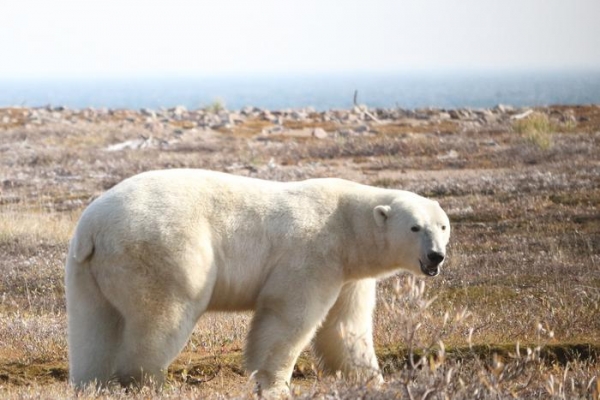More time stranded on land means greater risk of starvation for polar bears, a new study indicates.
More time stranded on land means greater risk of starvation for polar bears, a new study indicates.
During three summer weeks, 20 polar bears closely observed by scientists tried different strategies to maintain energy reserves, including resting, scavenging and foraging. Yet nearly all of them lost weight rapidly: on average around 1 kilogram, or 2.2 pounds, per day.
Some have speculated that polar bears might adapt to the longer ice-free seasons due to climate warming by acting like their grizzly bear relatives and either rest or eat terrestrial food. The polar bears in this study tried versions of both strategies — with little success.
“Neither strategy will allow polar bears to exist on land beyond a certain amount of time. Even those bears that were foraging lost body weight at the same rate as those that laid down,” said Charles Robbins, director of the Washington State University Bear Center and co-author of the study in the journal Nature Communications. “Polar bears are not grizzly bears wearing white coats. They’re very, very different.”
Read more at Washington State University
Image: Polar bear on land in Western Hudson Bay region (Credit: David McGeachy)




